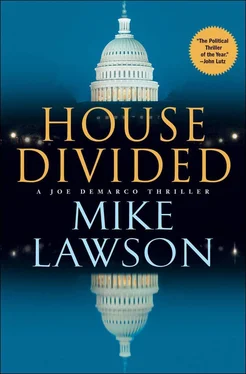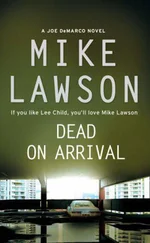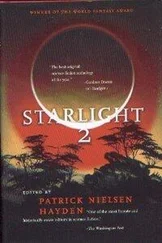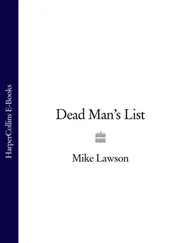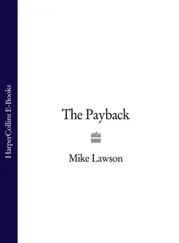Mike Lawson - House Divided
Здесь есть возможность читать онлайн «Mike Lawson - House Divided» весь текст электронной книги совершенно бесплатно (целиком полную версию без сокращений). В некоторых случаях можно слушать аудио, скачать через торрент в формате fb2 и присутствует краткое содержание. Жанр: Триллер, на английском языке. Описание произведения, (предисловие) а так же отзывы посетителей доступны на портале библиотеки ЛибКат.
- Название:House Divided
- Автор:
- Жанр:
- Год:неизвестен
- ISBN:нет данных
- Рейтинг книги:3 / 5. Голосов: 1
-
Избранное:Добавить в избранное
- Отзывы:
-
Ваша оценка:
- 60
- 1
- 2
- 3
- 4
- 5
House Divided: краткое содержание, описание и аннотация
Предлагаем к чтению аннотацию, описание, краткое содержание или предисловие (зависит от того, что написал сам автор книги «House Divided»). Если вы не нашли необходимую информацию о книге — напишите в комментариях, мы постараемся отыскать её.
House Divided — читать онлайн бесплатно полную книгу (весь текст) целиком
Ниже представлен текст книги, разбитый по страницам. Система сохранения места последней прочитанной страницы, позволяет с удобством читать онлайн бесплатно книгу «House Divided», без необходимости каждый раз заново искать на чём Вы остановились. Поставьте закладку, и сможете в любой момент перейти на страницу, на которой закончили чтение.
Интервал:
Закладка:
The day the towers collapsed, Dillon knew-he knew with absolute certainty-that politicians would never have the courage to do what needed to be done. And the recommendations of the blue-ribbon bipartisan commission that had investigated the causes of 9/11 had proven him correct. The commission’s most significant recommendation was that a National Security Director-an intelligence czar-be appointed: a single individual who would ensure that sixteen divergent and competing federal intelligence agencies would act in a coordinated fashion in the future.
What a joke. What a horrible joke. There was no way sixteen agencies-agencies staffed by bureaucrats who protected their rice bowls more fiercely than any tigress ever protected a cub-would give up their authority, their autonomy, or their budgets for the sake of cooperation.
More importantly, what the 9/11 Commission didn’t seem to understand was that the War on Terror was a war for information. The U.S. government was no longer fighting other governments-governments that declared their policies and advertised their intentions, governments that could be penetrated and spied upon. Now they were dealing with thousands of isolated terrorist cells spread about the globe, under no centralized control, independently plotting America’s destruction-and an unknown number of those cells were operating in America, just as the 9/11 hijackers had done. The men who flew the planes into the towers on September 11 were on American soil almost two years before the event, chattering to each other on cell phones about the best places to take flying lessons and how easy it was to sneak box cutters on to airplanes. The 9/11 Commission concluded the government’s failure to stop the hijackers was an interagency coordination problem, whereas Dillon knew the failure occurred because the right people weren’t listening-and the reason they weren’t listening was because the law prevented them from doing so.
What the 9/11 Commission should have concluded was that the NSA needed to start monitoring all communications occurring inside our borders as well as outside-that the agency needed to spy upon citizen and foreigner alike, to identify any future mischief being planned. But even before the commission issued its spineless report, Dillon had known that would never happen. So on that morning, as the dust was still choking the inhabitants of Manhattan, he began to think about what needed to be done.
Although most Americans have no idea what the National Security Agency does, it is America’s largest intelligence service both in terms of personnel and funding. It employs more than thirty thousand people, and their primary mission is eavesdropping on foreigners, friend and foe alike. And as practiced by the agency, eavesdropping is not a man with his ear pressed to the wall. Eavesdropping means capturing any communication in any medium. Buried fiber-optic cables are tapped; microwave, radio, and telephone transmissions are intercepted; satellites listen; codes are broken. No communication is safe from the Net. To do what Dillon wanted to do wasn’t, therefore, a technical problem; it was instead a legal one-a pesky law called FISA, the Foreign Intelligence Surveillance Act.
The father of FISA was the late Edward M. Kennedy, and he introduced his legislation following years of Senate investigations into Richard Nixon’s use of domestic intelligence agencies to spy on political activists. Surprisingly-or maybe not-Democrats and Republicans supported Ted’s bill, including folks like Republican Strom Thurmond, a man not known for leaning far to the left. It appeared that neither conservative nor liberal liked the idea of presidents ignoring the privacy protections guaranteed Americans by the Fourth Amendment.
FISA strictly prohibits randomly monitoring the communications of U.S. citizens. That is, it does not allow an intelligence agency to listen to as many phone calls as it possibly can just hoping to hear two guys talking who might be terrorists. FISA basically says that if you want to eavesdrop on the communications of Americans and foreign residents on American soil, you need a warrant, and to get said warrant, the government has to be able to show that these folks are suspected of being engaged in terrorism or espionage. Now getting these warrants isn’t particularly difficult, because the warrants are approved by the Foreign Intelligence Surveillance Court, a group of federal judges who act in total secrecy and whose decisions are not really monitored by anyone. Furthermore, suspected isn’t a particularly challenging legal standard to meet. Nonetheless, obtaining these warrants takes time-and in a war, minutes count-but more importantly, there was an obvious catch-22. You might suspect that an American named Muhammad who attends a mosque led by a radical, fire-breathing, anti-American imam is plotting nefarious things, but you couldn’t really be sure until you listened to a few of Muhammad’s calls. In other words, just being named Muhammad wasn’t sufficient justification for a warrant.
Then, to Dillon’s immense surprise and delight, he found that there was, in fact, one politician who had the courage to do what needed to be done: the president of these United States. Following 9/11, the president concluded that FISA was a major roadblock to his forces engaged in the War on Terror, and he issued an Executive Order-which no one ever saw-which said that in the future the NSA didn’t need a warrant to eavesdrop on folks suspected of terrorism. The president’s intention was never to spy on Americans communicating with other Americans, however. His intention was that if an American or a foreigner on American soil was a suspected terrorist and was calling overseas, no warrant was required anymore. And to calm the nerves of those people at the NSA who were worried about going to jail for breaking the FISA laws, he sent them to his top lawyer, the Attorney General. The AG told the spies not to worry, that the president’s directive trumped FISA-and the NSA was off to the races, with Dillon leading the pack.
Dillon did have one other small problem, though. It was relatively easy for the NSA to capture wireless signals-signals that swam through the atmosphere like blind fish, bouncing from satellite to satellite. The Net just vacuumed these babies up. The problem was that in the twenty-first century the majority of all communications-voice and e-mail-were being routed through fiber-optic cables, and to tap into a fiber-optic cable wasn’t a matter of simply attaching a couple of alligator clips to a wire. To tap into fiber-optic cables, it was necessary to go into communications company switching stations and connect complex equipment and sophisticated computers to the cables. Fortunately, thanks in large part to the Justice Department’s interpretation of the law, companies like Verizon and AT amp;T agreed to cooperate. And once this equipment was installed it became possible to monitor everyone’s communications-and Dillon began doing so. Again, this was not what the president had in mind, but once he opened the door, Dillon jumped right through it.
It was impossible to listen to everything, of course. Every twelve-year-old in America-and maybe in the world-has a cell phone, and billions of calls, e-mails, and text messages pass through fiber-optic cables every day. So the NSA’s marvelous computers listened for key words and phrases, or calls going to certain locations, or calls spoken in certain languages. To use a simple example-the actual process was much more complicated-if a man in Washington speaking in Arabic said the words white house and ka-boom in the same sentence… well, the spies at Fort Meade perked right up.
But Dillon knew it wouldn’t last. The NSA’s warrantless eavesdropping program was a secret being kept by politicians, several thousand spies, telecommunications company employees, and big-mouthed lawyers at the Department of Justice. It was, in fact, amazing the secret was kept for as long as it was-for nearly four years-but in 2005 one of the big-mouthed lawyers squealed. He squealed to a reporter named James Risen who dwelled in that bastion of anarchy known as The New York Times, after which The Times told everybody what the NSA was doing and things came to a screeching halt-for everyone but Dillon, that is.
Читать дальшеИнтервал:
Закладка:
Похожие книги на «House Divided»
Представляем Вашему вниманию похожие книги на «House Divided» списком для выбора. Мы отобрали схожую по названию и смыслу литературу в надежде предоставить читателям больше вариантов отыскать новые, интересные, ещё непрочитанные произведения.
Обсуждение, отзывы о книге «House Divided» и просто собственные мнения читателей. Оставьте ваши комментарии, напишите, что Вы думаете о произведении, его смысле или главных героях. Укажите что конкретно понравилось, а что нет, и почему Вы так считаете.
